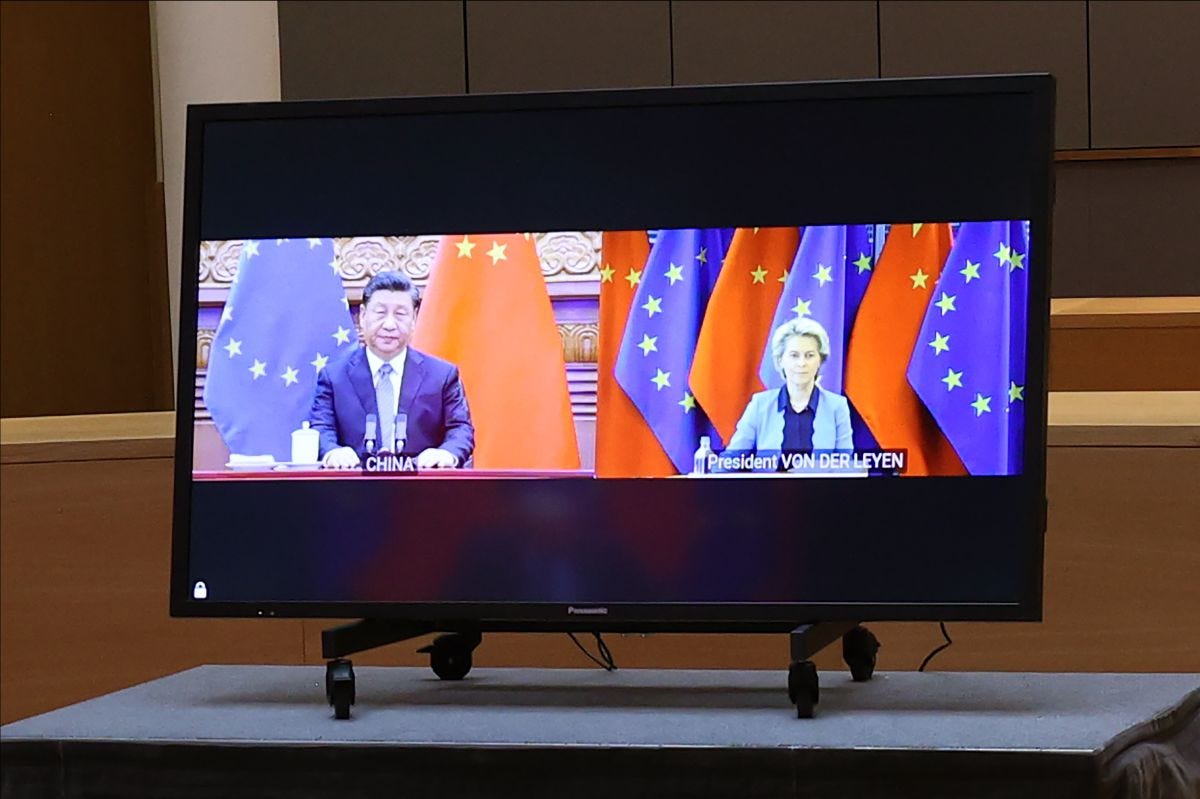The European Union must prepare for a much more difficult relationship with China
The tone of European Union-China relations changed radically in 2019. The EU moved beyond engagement to competition and even rivalry. China has become Europe’s largest competitor in third markets and increasingly even in the EU single market. This aggressive competition is the result of a complicated mix of China’s greater competitiveness, massive Chinese industrial policy underpinned by subsidies, and the Chinese market not offering sufficient opportunities to its own companies, let alone foreign companies, because of extremely subdued consumption and the lack of investment opportunities.
China is also becoming a greater security threat to the EU. China’s support for Russia in its aggression against Ukraine was at the beginning less evident, but is becoming increasingly obvious with substantial exports of dual technology – another major issue for the EU to grapple with.
The deterioration in EU-China relations is underpinned by China’s increasingly state-led economy and its more frequent use of its leverage in a context of most countries, and certainly the EU, becoming strategically dependent on China. Lithuania is probably the clearest example of China flexing its muscles (China put trade pressure on Lithuania after Lithuania deepened its Taiwan ties), but China has also responded to EU countervailing duties on its electric vehicles (EVs) with its own subsidy/dumping investigations.
Furthermore, China has stepped up its anti-Western foreign policy push that seeks to build a new global order. The expansion of the BRICS bloc and its dedollarisation plan is a good example. So is China’s threefold global initiative covering development, civilization and security, which are an attempt to move the Global South away from the principles of the Western-led liberal world order.
The EU and its member countries would do well to accept that there will be no return to the old EU-China modus operandi. China has changed and so has the EU’s attitude towards its increasing assertiveness. Meanwhile, China’s growing size – economically and politically – coupled with shrinking European economic and political weight in the global arena, imply that the EU should use its leverage now, before it wanes. The EU’s main lever is its single market, which is still China’s largest export market.
In approaching China, the EU should follow three guiding principles. First, any China strategy needs to be EU-wide. Member states need to be fully on board so the strategy is coherent and effective. The strategy should reflect the EU’s need to co-exist with China, given its size and relevance. This means cooperation to tackle global challenges, but without accepting that a price needs to be paid for such cooperation, as China sometimes hints, especially in relation to climate change.
Co-existence also means reducing dependence on Chinese imports, especially those critical for Europe’s energy and digital transition. The EU must make an effort to find new sources for imports while better combining friend/nearshoring with reshoring. In addition, for European countries that still depend heavily on China as an export market, diversifying export markets is also important. Ironically, such dependence on China’s market has been waning given China’s own push for self-reliance and the related reduction in imports, especially from the West. In other words, any EU strategy on China must continue to push de-risking by further deploying instruments adopted during the 2019-2024 European Commission term, including export controls and inbound investment screening.
Second, the EU needs to boost its economic security (and security more generally) by enhancing current tools (World Trade Organisation-related or EU tools), better coordinating existing measures such as export controls and inbound investment screening, and developing new tools, such as outbound investment screening.
Third, for Europe to coexist effectively with China while protecting its interests and values, partnerships will be crucial. This should by no means be limited to the United States, especially if Donald Trump wins the 2024 presidential election. Partnerships should be expanded to other countries and two categories of partnership can be identified.
The first category is already in the making, within the G7, on issues of common interest such as the resilience of supply chains, and also on the coordination of export controls to reduce transfers of dual technology, crucial for (economic) security. Such measures can be extended to like-minded countries such as South Korea and Australia.
The second category of partnerships would be with emerging and developing economies. They remain very important markets for European products and are also sources of critical raw materials for the EU’s digital and green transition. However their needs are mounting in relation to pursuit of a sustainable development model. Any offer the EU might bring to such partnerships will need to include sufficient funding and technological transfer. The Global Gateway to foster investment in sustainable development is a good start but is clearly insufficient, given how important partnerships with Global South countries are for Europe.
The EU needs to co-exist with China while protecting its own interests and values. Coexistence should allow collaboration to meet global challenges, but collaboration should not come with a price tag. Meanwhile, bilateral economic competition will continue to dominate, sometimes carried on using unfair tools. The EU will need to protect itself and avoid threats to its prosperity. It should do what can be done via the WTO but also apply its own trade defence kit in a more developed economic security framework. Finally, as far as the global liberal order is concerned, the EU will need to confront China’s systemic rivalry by continuing to uphold the existing order, both directly and by strengthening partnerships.
* This is a reprint. This article has been published as part of Bruegel Zhonghua Mundus Newsletters within the EU Project China.
https://mailchi.mp/bruegel/zhnghu-mundus-250924?e=a5e5188c94


